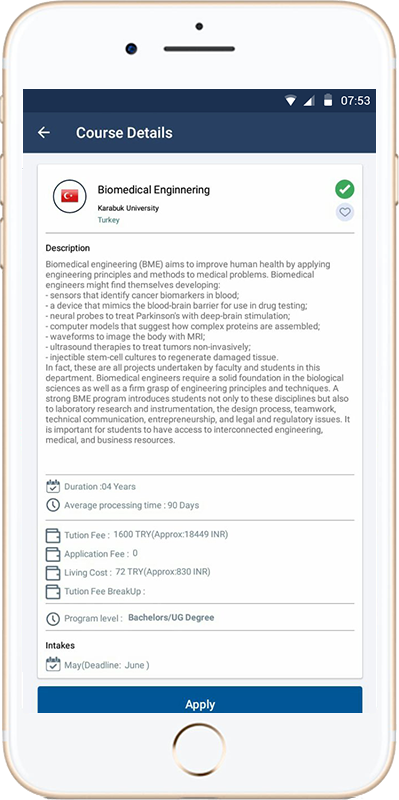On 1 August 1967, the University of Dundee came into formal existence by virtue of a Royal Charter. A longstanding relationship with St Andrews had come to an end. Dundee was now free to develop in the ways it wanted to. Free, that is, subject to the same constraints of government policies, funding regimes and student choices which all universities in the UK faced then and still face now.
In Dundee in 1881, Miss Mary Ann Baxter and her cousin, John Boyd Baxter - two of the famous Baxter family, who made their money from the Jute mills of the city - donated £140,000 to the creation of a college in Dundee. This was the beginning of the University of Dundee.
From the start it was an institution that stood out. Instead of professors with ivory tower backgrounds, it employed bright young people who realised that to compete in the modern world, Great Britain needed to improve its technological output. William Peterson, who was a Latinist and Scholar, became the inaugural Principal in 1882 at the tender age of 26. Patrick Geddes, who didn’t have a degree, was professor of botany and one of the foremost thinkers in the world.
Central to the institution's founding deed was that it should be used for "promoting the education of persons of both sexes, and the study of science, literature, and the fine arts”.
The Baxters' plans were for University College Dundee to offer a full range of subjects (other than Divinity – no-one was to be made to declare their religious convictions and no religious subject was to be taught).
The generous donations to the new University College saw the establishment of a Mechanics’ Institution, adjacent to the College, the construction of a Chemistry laboratory, and leading scholars appointed to the new Chairs. These included D’Arcy Thompson (Biology, later Natural History), James Alfred Ewing (Engineering), and Thomas Carnelley (Chemistry).
The new University was situated on the Nethergate, between Park Place and Small’s Wynd. To house the 373 students that signed up in the first year, four detached houses were bought by Mary Ann Baxter for £35,000 and a corridor was constructed at the rear to link the properties. Today those buildings house the Business School.
Initially, UCD and St Andrews worked alongside each other in relative harmony. Dundee students were able to graduate in Science from St Andrews, despite never having attended any classes in the smaller town.
Relations, however, soon became strained over the issue of the Medical School and whether chairs of Anatomy and Physiology should be established in Dundee, St Andrews or both, setting the stage for the tensions that would bedevil the relationship between the two institutions for the next few decades.
An unsettled situation was shaken up still further by the Universities Scotland Act of 1889. This Act reorganised the legal position of university courts and senates, and under its provisions, commissioners were given the power to affiliate University College Dundee and make it part of St Andrews.
After some inevitably bitter arguments, an Agreement was drawn up by both parties. It resulted in St Andrews retaining Theology, Arts and Pure Science, and UCD taking on Applied Science and Medicine.
Medicine, however, had a confused position. In the Agreement it was described as ‘conjoint’ – a term that no-one actually bothered to define. In practice, students would spend their first summer session at St Andrews, and St Andrews would retain its Chairs of Natural History, Botany and Chemistry. Dundee Royal Infirmary was particularly keen to co-operate with clinical teaching.
However, both Dundee and St Andrews laid claim to teaching the pre-clinical subjects. Further acrimony ensued and disputes over finances arose. The Rector of St Andrews was particularly opposed to the Agreement, and wanted to disaffiliate. Regardless, Ordinances issued in 1897 ensured that UCD formed part of St Andrews and established a Faculty of Medicine.
By 1904, University College had a roll of 208, a figure that amounted to 40% of the combined University. By the mid 1900s, relations between the University of St Andrews and University College were becoming severely strained. A 1954 Royal Commission led to University College being given more independence, being renamed Queen's College, and taking over the Dundee School of Economics.
Those invested in the future of both UCD and the University of St Andrews had divergent views as to the best way to proceed, ranging from full incorporation to complete separation.
The Royal Commission Report of 1952, chaired by Lord Tedder, aimed to resolve the differences. The commissioners believed there should be a single university with two colleges and that the Dundee college should incorporate the medical school.
The emphasis in Dundee would be on Social Sciences within the Faculty of Arts, and new chairs were to be created in Economics, Philosophy and History. It was proposed that a Faculty of Law be established, and that the teaching of education should take place in Dundee. Pre-clinical teaching in medicine and dentistry would be concentrated in Dundee.
In 1953, the University of St Andrews bill received royal assent. Queen’s College was born, and the Tedder plans put into action. The 1950s saw an expansion in terms of subjects, buildings, and student numbers. A new School of Social Studies, a new chair of Education, a part-time chair of Conveyancing to strengthen the Law Faculty, and a separate Faculty of Applied Science were all established at this time.
Progress was being made and Queen’s College was evolving, but not heading inexorably on the road to independence. What changed the situation was the Robbins Report of 1963, which concluded that ‘all who are qualified to pursue full time education should have the opportunity to do so’. The impact on Queen’s College was significant; demand for the social science courses increased and by 1966 student numbers were up to 2089.
The policy of non-duplication of courses with St Andrews was abandoned, with Principal Sir Malcolm Knox forecasting that this would increase numbers to a staggering 6,000. In 1964 he proposed that Queen’s College should become an independent university. On 1 August 1967, the royal charter was granted and the University of Dundee was formally established. The Queen Mother became the University’s first Chancellor, both raising its profile and acting as a vote of confidence in the fledgling institution.
It had been a long – and often bumpy – road to independence, but the University was now free to develop in its own way, and take steps towards becoming the outstanding institution it is today.
The main campus at the university has undergone incredible change over the past 50 years. The 1960s alone saw the building of the Dentistry building, Bellmont Halls and, most notably, the Tower Building. Recent times have seen the rise of modern feats of architecture such as the Life Sciences building, the Dalhousie building and the award-winning School of Computing building.
With 18,000 students from 145 countries and 3,000 staff from 72 countries Dundee is a truly global institution.
We have links across the world with businesses, governments and world class institutions. We are passionate about transforming lives locally and globally through the creation, sharing and application of knowledge.
Our international strategy
Internationalisation is at the heart of what we do, our strategy sets out a clear direction over the next 5 years.
Bring the world to Dundee.
- Recruit quality international students;
- Provide an outstanding campus experience for international students and staff;
- Develop our students’ skills to enable them to thrive in a global environment
- Attract top-level international research to Dundee
- Draw outstanding teaching and research staff from around the world
Take Dundee to the world.
- Establish Dundee as a world centre for research, teaching and innovation;
- Expand our portfolio of distance and blended learning programmes.
- Deepen the connections between our research staff and the global research community
- Grow our international alumni and business networks.
National Student Survey 2020
Dundee ranked 11th among UK universities for overall student satisfaction in the 2020 National Student Survey (NSS). We recorded overall satisfaction of 87.4% for full time students on undergraduate degrees, well above the sector average and placing Dundee 4th in Scotland for overall satisfaction.
The National Student Survey (NSS) surveys final-year undergraduate students each year. It asks them to rate their satisfaction with different aspects of their university learning experience.
Graduate Outcomes Survey 2020
The Graduate Outcomes Survey was published by the Higher Education Statistics Authority (HESA) in June 2020
Dundee is the 4th university in the UK for graduates entering professional occupations (this excludes specialist higher education providers).
64.5% of Dundee graduates were working in professional occupations within 15 months of graduating.
The University is also top in Scotland, and 14th in the UK, for the proportion of graduates entering high skilled employment (87.4%), while more Dundee graduates in full-time professional employment agreed with the statement “my current activity is meaningful” (92%) than those from any other Scottish university.
Complete University Guide 2021
We rank joint 1st in the UK for Medicine in the Complete University Guide 2021 rankings.
Dundee sits alongside Glasgow at the top of the Medicine rankings, and is also number one for Medical Technology.
This caps a strong performance across our wider life and medical sciences with the University also in the UK top five for Dentistry (2nd), Forensic Science (2nd), Pharmacology & Pharmacy (2nd) and Biological Sciences (3rd).
The University also featured in the subject ranking top tens for Anatomy & Physiology (6th), Education (7th), General Engineering (7th), Social Work (8th) and Art & Design (9th). There was a dramatic rise in the tables for Nursing, which surged 22 places to sit 24th in the table.
In the overall league table, Dundee is at 31st in the UK, out of 130 universities, for the third consecutive year.
Read the full Complete University Guide rankings
Guardian University Guide 2021
We are in the top 20 universities in the UK, according to The Guardian in the 2021 edition of their University Guide.
We ranked 19th, up from 29th the previous year.
In the subject rankings, we are top for Medicine and in the top five for Dentistry (3rd), Design & Crafts (4th) and Education (4th)
View the full Guardian University Guide 2021 rankings
The Times & The Sunday Times Good University Guide 2020
We are University of the Year for Student Experience in The Times & The Sunday Times Good University Guide 2020.
The award reflects our outstanding scores for teaching quality and the wider student experience. The editors of the Guide also referenced our Gold Award in the Teaching Excellence Framework and the success of our Student Partnership agreement with our Students’ Association.
In the accompanying league table, we rose to 24th in the UK and 3rd in Scotland, behind only St Andrews and Glasgow.
International Student Barometer 2019
The University of Dundee has recorded one of the highest satisfaction rates in the latest International Student Barometer (ISB).
The results of ISB’s Autumn 2019 survey show overall average satisfaction of 89.1% among Dundee’s EU and international students, the highest percentage of any participating Scottish universities, 4th in the UK and 14th out of the 183 institutions participating across the world.
Dundee’s Enquiry Centre had the 2nd highest satisfaction rating globally, highlighting the great work of our student support services. Factors relating to Support, Arrival, Learning and Living were also identified as being particular strengths of the experience Dundee offers its EU and international students.
With feedback from over 3 million students worldwide across all student types, levels and years of study, the ISB is the world's largest survey of international students. It is independently administered for participating universities by the International Graduate Insight Group.
Times Higher Education Golden Age University Rankings 2019
The Times Higher Education Golden Age University Rankings cover universities established in the two decades between 1945 and 1967, encompassing 271 institutions from 49 countries in the most recent table. Dundee was ranked 1st in Scotland, 8th in the UK and 30th in the world in 2019.
Times Higher Education University Impact Rankings
We placed in the top 50 in the world in the 2020 edition of the Times Higher Education University Impact Rankings.
The rankings recognise that the role of universities extends beyond research and teaching to a third mission revolving around engagement, knowledge exchange and innovation for societal good. These rankings measure the global higher education sector’s success in delivering the United Nations’ Sustainable Development Goals (SDGs).
The rankings include more than 800 universities worldwide. Dundee is ranked 44th overall and 9th in the world against the Sustainable Development Goal of Good Health & Wellbeing. We also ranked inside the top 50 against the SDGs of Climate Action, Responsible Consumption and Production, Peace, Justice and Strong Institutions, and Partnership for the Goals.
See full THE University Impact Rankings
Times Higher Education Student Experience Survey 2018
The University of Dundee ranked 2nd in Scotland in the 2018 Times Higher Education Student Experience Survey.
The 2018 survey ranks 116 universities across the UK. Dundee is placed 14th overall, one place higher than 2017.
More than 20,000 undergraduate students across the UK contributed to the 2018 survey. The full results can be seen at Times Higher Education
International Student Barometer 2018
The University of Dundee has recorded one of the highest scores in the latest International Student Barometer (ISB).
The results of ISB’s Autumn 2018 survey show overall average satisfaction of 89.6% among Dundee students, the highest score of any participating Scottish universities, 2nd in the UK and 6th globally.
Dundee had the highest score globally for ‘University Clubs and Societies’, and 2nd highest for ‘Enquiry Centre and Library Service’. Factors relating to Living, Support and Arrival were also identified as being particular strengths of the experience Dundee offers its international students.
With feedback from over 3 million students worldwide across all student types, levels and years of study, the ISB is the world's largest survey of international students. It is independently administered for universities by the International Graduate Insight Group.
Teaching Excellence Framework 2017
The University of Dundee has been given a Gold award – the highest possible rating – in the 2017 Teaching Excellence Framework (TEF).
The TEF was introduced by the UK Government to recognise and reward excellent learning and teaching.
The ranking places Dundee among an elite group of British universities licensed to use the TEF Gold Award for the next three years.
Times Higher Education Most International Universities 2016
Ranked 123rd in the Top 200 of the rankings.
The University of Dundee has been named among the world's 'most international' universities in a new global list compiled by the leading higher education journal, Times Higher Education.
To compile the new table, THE examined the diversity of a university's student body and the extent to which its academics collaborate with international colleagues, to give a picture of how global an institution really is.
"This ranking is fantastic news and reflects the nature of Dundee as a global institution. We are continuing to expand our international activity, bringing the world to Dundee with students from all parts of the globe, and taking Dundee to the world through a formidable range of academic and business partnerships.
"We teach nurses in Eritrea and Kenya, we train orthodontists in Egypt, we partner a research institute to tackle diabetes in Kuwait, we attract life sciences doctoral students from Brazil, we work with seventeen leading Chinese universities, mainly in science and engineering, in addition to the thousands of students who come here to Dundee every year."
Wendy Alexander, Vice-Principal (International)
"An institution's global outlook is one of the key markers of a prestigious university. The top institutions hire faculty from all over the world, attract students from a global market of top talent and collaborate with leading departments wherever they happen to be based.
It is great news for all the institutions in the list of the most international universities in the world. It is a sign of great potential, competitiveness and dynamism."
Phil Baty, Editor at THE Rankings
Research Excellence Framework 2014
The 2014 Research Excellence Framework (REF) assessed the quality and impact of research submitted by UK universities across all disciplines. The results published in December 2014 will be used by the funding bodies to allocate block-grant research funding to universities from 2015-16.
Dundee No. 1 University in UK for biological sciences
Excellent result in science, technology, engineering and mathematics (STEM) subjects where the University's quality profile was the highest in Scotland
76% of research rated as `world-leading’ or `internationally renowned’
Find out more on our Research website
Leiden Rankings
Dundee was rated among the world's best universities in terms of the impact of its scientific research in the 2019 CWTS Leiden Rankings.
The Leiden rankings are based on research publications data and offer important insights into the scientific performance of nearly 1000 major universities worldwide.
They place Dundee at 15th in the world for the highest proportion of highly cited publications. This is based on the proportion of citations in the most cited 1% of articles across all disciplines.
The University was ranked 8th globally for 'Biomedical and Health Science' publications, which puts us 1st in the UK
















